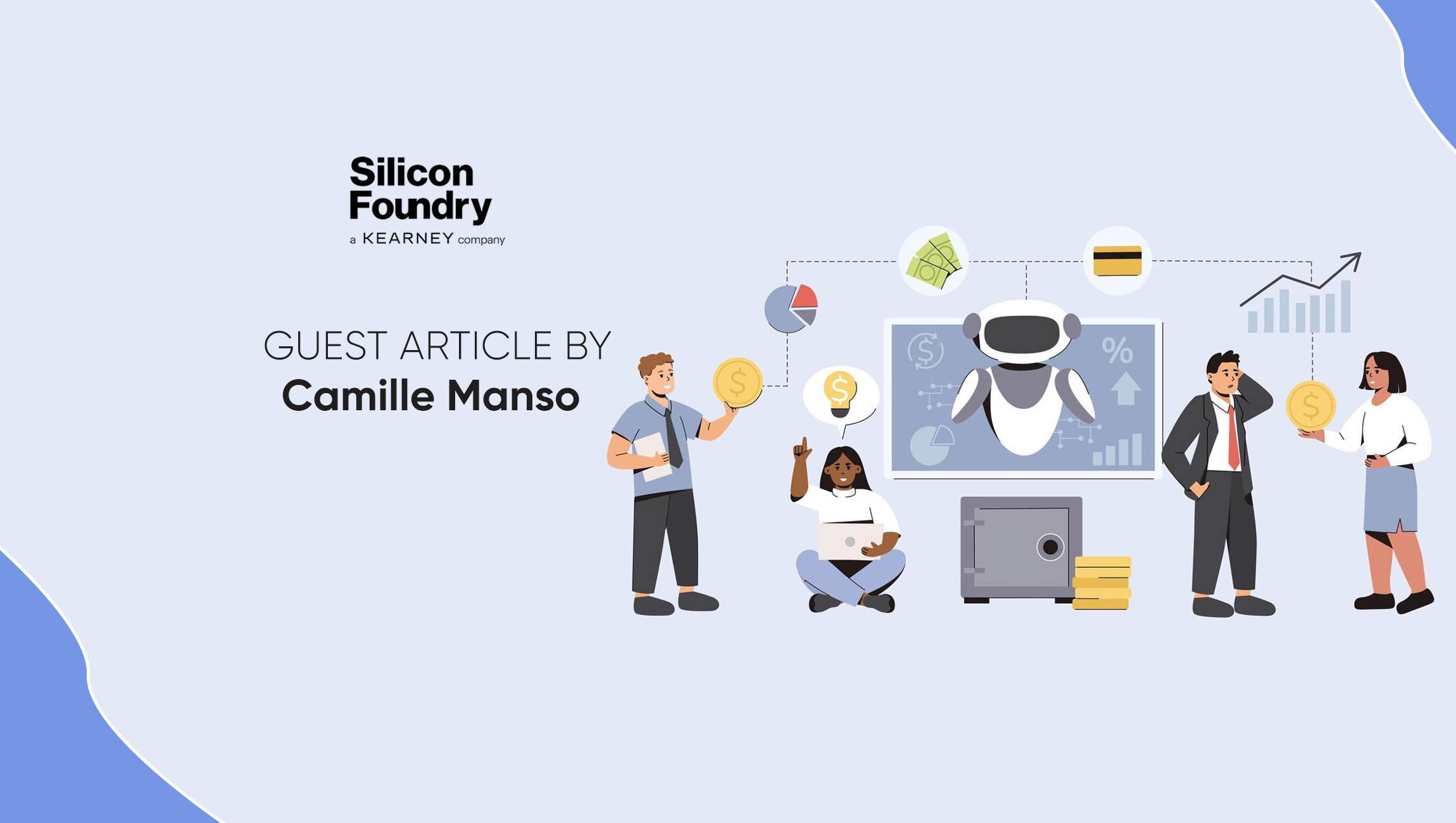In today’s fast-paced digital marketing environment, the ability to swiftly adapt and optimize campaigns is essential for success. AI-powered consumer insights are proving to be a game changing solution, allowing marketers to gain a deeper understanding of customer preferences and behaviors through advanced analytics. Currently, 90% of marketers in 35 countries use AI tools to automate customer interactions and 88% of marketers working with AI say that the technology has helped them personalize the customer journey across different channels.
This technology surpasses traditional data analysis by utilizing AI to uncover intricate patterns and trends, thereby informing more targeted and effective marketing strategies. This means marketers can adjust their strategies faster, saving time and money. Plus, AI doesn’t just examine what happened in the past – it can predict what might happen in the future too.
Here’s a look at how AI-powered consumer insights are benefiting marketers, the startups driving innovation in this space, the challenges that must be overcome, and what the future might hold.
AI vs. Traditional Data Analysis
Traditionally, marketers relied on sampling methods and manual efforts to analyze consumer data, often leading to time-consuming processes and limited insights. However, AI-powered consumer insights represent a huge leap forward. Unlike traditional methods, AI enables the analysis of vast datasets in real-time. By leveraging real-time feedback, marketers can make instant adjustments to campaigns, improving engagement rates and reducing costs.
AI-driven insights also surpass the confines of historical data analysis. Instead of merely examining past trends, AI empowers marketers to predict future behaviors and preferences. For example, by synthesizing past sales data with variables such as disposable income trends and seasonal patterns, AI can forecast future consumer trends with remarkable accuracy. AI also has the capability to analyze unstructured data sources like social media posts and customer reviews, providing marketers with invaluable insights that traditional methods might overlook.
Marketing Technology News: MarTech Interview with Brad Gillespie, GM @ Cvent Consulting
Benefits of AI-Powered Consumer Insights for Marketers
AI could power 95% of all customer interactions by 2025. And this has already begun to drive changes in consumer demands and expectations. To continue to meet customers where they are, organizations are adopting use cases that differentiate them from their competitors.
AI-powered consumer insights offer marketers a multitude of specific benefits, enhancing the optimization of marketing campaigns in various ways:
- Hyper-personalization: AI enables marketers to create targeted campaigns tailored to individual consumer behavior and preferences, fostering heightened customer engagement and loyalty. A great example is Starbucks: with AI, the coffee giant uses real-time data to send users unique offers based on their preferences, activity, and past purchases.
- Optimized Marketing Mix and Predictive Analytics: Analyzing data from multiple channels, AI can recommend the most effective strategies, maximizing the return on investment (ROI) for marketing expenditures. AI models can predict campaign performance based on past data, enabling marketers to allocate resources more efficiently. By forecasting outcomes, marketers can make informed decisions about where to invest their time and budget, increasing the likelihood of success.
For example, companies like Vidmob and CreativeX use AI to analyze images and videos for compliance with brand guidelines and digital ad performance, enabling brands to maximize the impact of their content. Leading CPGs, including PepsiCo, partner with CreativeX to improve quality, consistency, and engagement in real time.
- Improved Customer Segmentation: Advanced clustering algorithms facilitate enhanced customer segmentation, uncovering nuanced audience segments for more targeted approaches. This allows marketers to tailor their messaging and offers to specific groups, increasing relevance and effectiveness.
Companies of all sizes and across industries are utilizing these tools, including Intuit, Burger King, The Guardian, and HBO Max, among others. They are being powered by platforms like Braze and Klaviyo, which help businesses to personalize their customer communications through robust data analytics and AI-powered segmentation.
- Real-time Insights and Continuous Improvement: AI provides real-time insights into consumer behavior, allowing marketers to adapt their strategies on the fly. This agility enables marketers to capitalize on emerging trends and respond quickly to changes in the market, staying ahead of the competition. AI-powered analytics systems can learn and adapt over time, continually refining their algorithms and improving their accuracy. This iterative process allows marketers to continuously optimize their campaigns and drive better results over time.
Companies like OfferFit are leveraging self-learning AI to kill A/B testing. OfferFit’s platform allows its user to segment customers and optimize offers for each segment using machine learning to continuously learn and adapt based on each customers’ response.
Challenges and Solutions in Implementing AI-Powered Insights
Despite the potential of using AI for generating consumer insights, businesses face several challenges in implementation:
- Data Quality and Availability: AI follows the garbage in, garbage out rule. Ensuring the accuracy and relevance of data is crucial for AI-driven insights. Businesses should implement data governance policies and leverage data cleaning tools to overcome this challenge.
- Integration with Existing Technologies: Integrating AI systems with existing marketing technologies can be challenging. This hurdle can be overcome through the use of APIs, middleware, or collaboration with specialized vendors.
- Talent and Expertise: Many organizations lack employees with the expertise to implement AI solutions, or the resources to outsource this expertise. Today, this is especially challenging given the talent market, and how hard traditional companies must fight to attract and retain talent in AI. Investing in innovation and training, as well as engaging with the open innovation economy, can help bridge the gap.
- Data Privacy and Security: Addressing concerns surrounding data privacy and security, as well as biases in models and hallucinations, are essential for building consumer trust and compliance with regulations.
The Future of AI-Powered Consumer Insights
Looking ahead, the future of AI-powered consumer insights in the marketing industry is characterized by several key trends. Amid ongoing pressure to streamline expenses, AI tools offer companies a means to cut costs and gain autonomy in marketing endeavors, potentially reducing reliance on external agencies. This shift toward AI-powered tools enables companies to efficiently optimize their marketing efforts, enhancing competitiveness in the marketplace while maximizing cost-effectiveness.
Emerging platforms like chatbots and in-store retail present new avenues for collecting valuable consumer insights. By seamlessly integrating these insights, companies can craft a holistic omnichannel experience, bridging the gap between online and offline consumer interactions. AI tools are also fostering collaboration and efficiency across marketing, sales, and customer service domains, blurring traditional boundaries and necessitating a more comprehensive skill set across talent in these functions.
The key differentiator for brands and companies lies in their capacity to access and leverage individualized data on each customer or product, facilitated by verticalized GenAI models. Data quality and depth will emerge as the primary sources of gaining a competitive advantage, overshadowing the commoditization of LLMs. By prioritizing unique data assets and ensuring robust data quality, organizations can position themselves at the forefront of market differentiation.
Catch – Episode 203 Of The SalesStar Podcast: Sales Trends Dominating 2024 with Andy Kankula, Vice President of Business Development at Sion Power
Marketing Technology News: Using AI for Tomorrow’s Content: How Companies Can Master the Change











